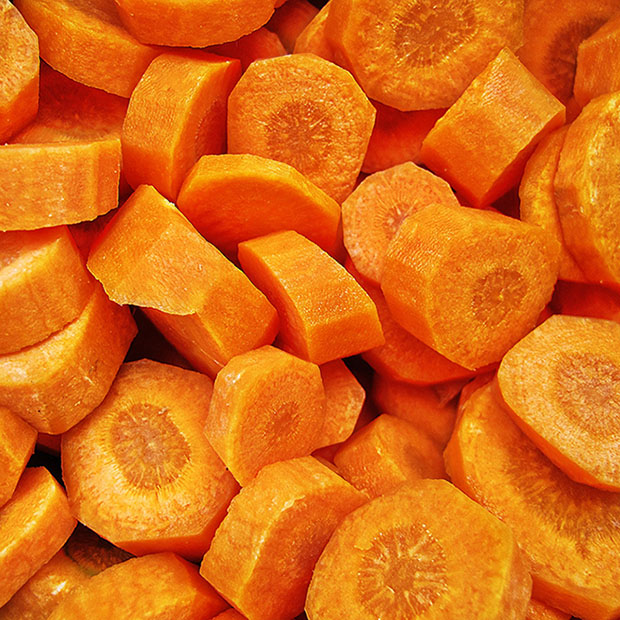What Are the Most Eye-Healthy Foods?

We’ve all heard that eating carrots will give us amazing eyesight.
Fun fact: that idea is actually leftover World War II propaganda. The British wanted to keep their new radar technology secret from the Germans, so they claimed far and wide that their airmen got superhuman night vision by eating lots of carrots.
Whether the ruse worked or not, it’s an idea that still lives on in some form eight decades later. There’s at least one grain of truth in it, though: carrots and other nutritious foods might not give us vision-based superpowers, but they do help our eyes stay healthy.
Carrots: the Real Story
Carrots really are good for us. Like other yellow and orange vegetables and leafy greens, carrots are a great source of vitamin A. The color comes from beta-carotene, which our intestines use to make vitamin A. Our eyes use this vitamin to convert light into brainwaves and keep our corneas (the clear layer over the front of the eye) strong. Vitamin A deficiency leads to blindness in as many as half a million children every year.
Oranges and Sweet Potatoes
We need antioxidants like vitamins C and E to stay healthy. For eye health, vitamin C lowers the risk of developing cataracts and may slow the progression of age-related macular degeneration (AMD). We can get plenty of vitamin C by eating citrus fruit like oranges, grapefruits, and lemons. We need vitamin E to protect our eyes from “free radicals” (molecules that disrupt healthy tissue), and sweet potatoes and nuts are great sources of vitamin E.
Leafy Greens and Eggs
Studies have shown that getting plenty of the nutrients lutein and zeaxanthin correlates with a lowered risk of chronic eye diseases like cataracts and AMD. Eggs and leafy greens are the best sources of these nutrients.
Fish and Oysters
We need plenty of omega-3 fatty acids for good brain function and a healthy immune system, and research shows that they also help with visual development and retinal function. There’s no better source of omega-3 fatty acids than fish.
Oysters, meanwhile, are a great source of zinc. Zinc acts as a vehicle that gets vitamin A from our livers to our retinas. A vitamin A-rich diet is useless if there isn’t any zinc to go with it. If you aren’t a fan of oysters, there are smaller amounts of zinc in nuts, beans, and meat.
Being Proactive About Eye Health Means More Than Nutrition
No matter how many great nutrients we consume for the sake of good eye health, eating right is no substitute for regular eye exams. Eye problems can happen for a variety of reasons unrelated to poor nutrition, and that’s where the optometrist comes in. We can detect problems in the early stages and begin treatment or intervention.